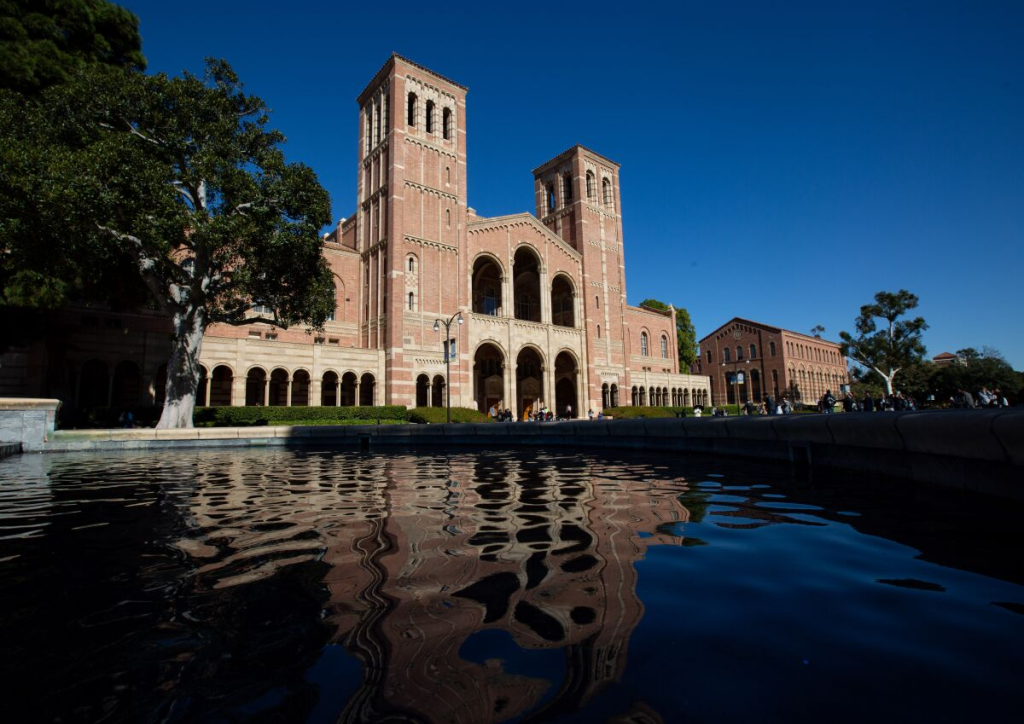Get Admitted to Your Dream University – UC

The University of California (UC) is a public land-grant research university system in the U.S. state of California. The system is composed of the campuses at Berkeley, Davis, Irvine, Los Angeles, Merced, Riverside, San Diego, San Francisco, Santa Barbara, and Santa Cruz, along with numerous research centers and academic abroad centers. Six of the campuses, Berkeley, Davis, Irvine, Los Angeles, Santa Barbara, and San Diego are considered Public Ivies, making California the state with the most universities in the nation to hold the title.The University of California opened its doors in 1869 with just 10 faculty members and 40 students. Today, the UC system has more than 280,000 students and 227,000 faculty and staff, with 2.0 million alumni living and working around the world.
Admission Requirements
- Achieve a high GPA while taking the most challenging classes available
- Standardized Tests – SAT/ACT
- Cultivate at least one or two Tier 1-2 extracurriculars (find your “niche”)
- Tier 1 activities are rare and demonstrate exceptional achievement or leadership at a national or international level. Some examples are, 1) Jack Kent Cooke Young Artist Award, a national prize awarded to top 20 pre-collegiate musicians, 2) Regeneron Science Talent Award, one of the most prestigious opportunities for high school students to present original scientific research in the USA, 3) World Robot Olympiad, a global competition where youngsters (13 to 19 years age) from different countries participate, 4) International Mathematical Olympiad, a math competition for pre- university students, 5) International Science Olympiads in various areas of the formal sciences, natural sciences and social sciences.
- Tier 2 extracurriculars show high levels of achievement and leadership but aren’t quite as rare as activities found in Tier 1 (they’re more of state-level achievements). These include making an all-state selection in athletics, serving as student body president, or being selected for a prestigious state-wide summer program like governor’s school.
- Tier 3 extracurricular activities are great for showing an applicant’s interest outside of the classroom but don’t have the cachet of higher-tiered extracurriculars. These activities are smaller leadership roles and achievements that often appear on applications. These include being captain of a sports team or holding a lesser officer position in a club.
- Tier 4 extracurriculars are the least impressive and most common activities seen by admissions officers. These activities include playing a sport or instrument, participating in a club but not holding a leadership position, and volunteering.
- Research Papers
- Write engaging essays
- Describe an example of your leadership experience in which you have positively influenced others, helped resolve disputes, or contributed to group efforts over time.
- Think about an academic subject that inspires you. Describe how you have furthered this interest inside and/or outside of the classroom.
- What have you done to make your school or your community a better place?
- Present your information and ideas in a focused, thoughtful manner. Making a list of accomplishments, activities or awards will lessen the impact.
- Use specific, concrete examples to support the points you want to make. Focus your examples on the present and near past.
- Tell them about yourself. The admission officers want to know about your personal triumphs or challenges, leadership opportunities and experiences outside the classroom.
- Use your own voice. Your answers should reflect your ideas and be written by you alone. Use “I” and “my” statements in your responses.
- Research the university and the faculty of the department you are planning to join. Explain in your essay how your values tie with the expectations of the university and how you expect to utilize the knowledge to make the world a better place.
It’s extremely important for University of California applicants to not only possess outstanding grades but for those grades to come in challenging courses. International students accepted to a top school like University of California typically complete between 3 to 5 advanced courses in high school. Advanced Placement or AP exams are conducted by the College Board (same global body that conducts SAT) every year in a wide variety of college-level subjects ranging from Calculus and Computer Science to Art History and English Composition. The main aim of AP exams is to test your ability and acumen to measure up to the rigors of undergraduate curriculum in US and other global universities. Typically, international students appear for AP exams at the beginning of their grade 12. Students interested in Engineering usually appear for Calculus, Physics, Computer Science or Chemistry. Students interested in Business Studies usually appear for Calculus, Microeconomics, Macroeconomics and Statistics. Students interested in Medicine usually appear for Biology, Psychology, Chemistry and Environmental Science.
Another reason why University of California applicants need great grades is that selective schools use a tool called the ‘Admission Index’ to filter out their enormous number of applicants. At its most basic, the Admission Index is a distillation of a student’s academic performance (grades and test scores) into a single number. This is a single score that represents the strength of your GPA, test scores, and class rank (if your school ranks). Highly selective universities use this (or a similar) metric to filter out students that don’t meet their academic standards.
Standardized test scores are not required by the University of California.
For selective institutions like University of California extracurricular activities can play a large role in admission decisions. A significant part of the admissions decision depends upon the student’s activities outside of the classroom. While it’s true that there is no such thing as a bad extracurricular activity, some extracurricular activities are more impressive than others. The UC application portal allows you to write about 20 extracurricular activities but it is clear that UC believes in quality over quantity.
Admissions officers evaluate extracurricular activities with Tier 1 activities getting the highest weightage. For example:
One common factor that we have noted in the resumes of students admitted to the top campuses like UC Berkeley and UCLA is the prevalence of research work while still in high school. There are three main reasons, as to why Research Papers help students stand out. A high-quality research paper shows that you have the energy and the initiative to go beyond what is taught in the class and apply it to real life problems. It shows that your interest in the subject extends beyond the questions provided at the end of the chapter. Secondly, you learn the discipline of not rushing intuitively to the likely answer, instead using a deliberate process in which you are guided by the data. Lastly, in working with a skilled professor or mentor you learn how to organize your thoughts better, ask the right questions and try to answer those questions in the best way possible subject to the constraints. A good work product provides an insight into your mind, thought process and way of working.
Essays are crucial in distinguishing yourself from other applicants. University of California provides a choice of eight essay prompts out of which the students can choose to respond to any four. The essays should be between 250-350 words. Some of the prompts are given below:
Some tips for writing great personal essays:
The primary criterion for admission to the University of California is academic excellence. University of California wants students who are committed, dedicated, passionate, have potential to succeed and those students with a genuine interest in expanding their intellectual horizon. Following the guidelines above will help you present your best self to University of California and maximize your admission chances.
About the Author:

Shubhi Joshi is an Editor at Scholarly. She has a B.A. in English and a M.A. from St Xavier’s College, Mumbai in Ancient Indian History, Culture and Archaeology. She has an interest in history and current affairs. An avid blogger, Shubhi loves to write about higher education and self-improvement.
Scholarly helps ambitious international students locate the right universities and courses to pursue their education. We provide college credit courses and research papers to students that want to learn more and differentiate themselves. We help students develop and present their best version to their dream university. Our recommendations are based on the student’s field of interest, academic performance, financial resources and career plans. We provide test preparation classes from the best teachers to help improve scores and thus the prospects for admission. We also assist students with their visa and loan applications to reduce the anxiety associated with international education.
For additional questions about international education, choice of majors, university selection or admission strategies please visit the Questions section of our website.

 Previous Post
Previous Post Next Post
Next Post
